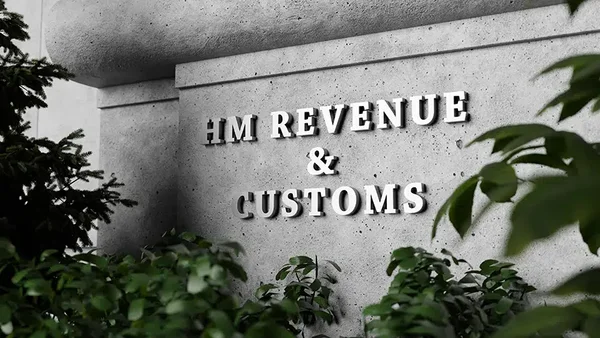Let’s Break This Down Together...
Not paying tax for 15 years can feel overwhelming and risky. You might wonder how much you owe, what HMRC will do, or whether it’s too late to fix things.
This article explains what happens if you’ve missed years of tax returns, how HMRC investigates, and the steps you can take to sort it out. It also covers disclosure options, penalties, and how to calculate your tax bill after such a long gap.
By reading on, you’ll learn how to tackle the situation, minimise penalties, and get back on track confidently. Let’s dive in!
Understanding Income Tax
Income tax is paid on your earnings, whether you’re employed, self-employed, or earning other income. In the UK, employees usually pay through PAYE, while the self-employed file a Self Assessment tax return each year.
It’s your job to make sure your tax returns are accurate and your tax is paid correctly. Otherwise, unpaid tax builds up interest and can lead to HMRC penalties.
If you’re unsure about your tax, seek advice or use HMRC’s tools. Staying organised and filing on time helps you avoid interest, penalties, and keeps your tax affairs in order.
What Happens When You Haven't Paid Tax for 15 Years?
HMRC takes a dim view of long-term non-payment of taxes. They can look back up to 20 years for cases of deliberate non-compliance, so a 15-year gap falls well within their investigative powers.
The financial impact can be enormous. HMRC will pursue the outstanding amount and the full tax owed, including interest and penalties. The total tax you owe will be calculated by HMRC, and you will be required to pay the tax in full or arrange a payment plan. You’ll face the original tax due, plus compound interest (currently running at 7.75% per year), and penalties that could range from 30% to 100% of the unpaid tax.
Criminal prosecution is a real possibility for deliberate tax evasion. This could result in a criminal record, fines, and even imprisonment for the most serious cases.
Your credit rating and financial reputation may also suffer. Unpaid tax owed can affect your ability to get loans, mortgages, or even open bank accounts in the future.

HMRC's Powers to Discover Historical Tax Non-Compliance
HM Revenue and Customs (HMRC) has sophisticated tools to identify people who haven’t paid tax. Their ‘Connect’ data system uses advanced analytics to cross-reference information from banks, land registry, and international data sources to identify discrepancies.
There’s no time limit for HMRC to investigate cases where they suspect deliberate non-disclosure. The 20-year look-back period gives them ample scope to examine your financial history through tax enquiries and determine whether all relevant income has been properly taxed.
HMRC regularly receives information about UK taxpayers from overseas tax authorities. This makes it increasingly difficult to hide offshore income or assets. It is important to notify liability for any undeclared income, as HMRC can review whether all relevant income has been taxed.
They may also receive tip-offs from the public, former business partners, or ex-spouses. Any of these can trigger investigations into historical tax matters. HMRC telling you about an investigation usually starts with a letter stating their intention to open tax enquiries into your affairs.
Coming Clean: Voluntary Disclosure Options
If you’ve not paid tax for 15 years, coming forward voluntarily is always the wisest choice. It is important to tell HMRC about any errors or undeclared income as soon as possible. This approach typically results in lower penalties and reduced risk of criminal prosecution.
The Digital Disclosure Service (DDS) is HMRC’s main channel for disclosing unpaid UK taxes. It allows you to notify HMRC of your intention to disclose and then submit a full disclosure within 90 days. As part of this process, you may need to have tax returns completed for all relevant years.
For offshore assets or income, the Worldwide Disclosure Facility (WDF) provides a structured way to bring your tax affairs up to date. Failure to notify HMRC about offshore income can result in notify penalties, which are often higher due to the nature of offshore jurisdictions.
In more serious cases, the Contractual Disclosure Facility (CDF) offers protection from criminal prosecution. This requires a complete disclosure and accurate disclosure of all tax irregularities to benefit from reduced penalties.
Those who have already told HMRC about their situation are likely to receive lower penalties. The penalty depends on the nature of the error and the taxpayer's behavior, and penalty ranges can vary from 0% to 100% depending on circumstances.

Calculating Your Tax Liability After 15 Years
Reconstructing 15 years of tax records is challenging but necessary. Start by gathering bank statements, employment records, and any business documentation you can find.
You’ll need to account for changes in tax legislation and rates over the 15-year period. Tax allowances, thresholds, and rates have changed significantly since 2008.
The compound interest on unpaid amounts substantially increases your liability. At current rates, unpaid tax from 15 years ago could have nearly doubled just from interest charges. HMRC will usually calculate the total sum owed, which includes all unpaid tax, interest, and penalties, and may offer a financial settlement to resolve the matter.
Professional help is almost essential for this complex process. A tax accountant can help you navigate the complexities and negotiate with HMRC, taking into account your individual circumstances and financial position, which will influence the negotiation process and the final settlement.
Steps to Regularise Your Tax Affairs
The first step is to seek professional advice immediately. Look for a tax specialist with experience in voluntary disclosures and HMRC investigations.
Be completely honest with your advisor. Partial disclosures can lead to more severe penalties if HMRC later discovers additional undisclosed tax liabilities.
Prepare a comprehensive disclosure statement explaining why you failed to comply with tax obligations. HMRC may look more favourably on genuine misunderstandings than deliberate evasion.
If you can’t pay the full outstanding amount immediately, you must contact HMRC as soon as possible to discuss your options. HMRC may agree to a payment plan, but you will need to pay HMRC directly. Payment plans are designed to ensure you still have enough money for essential living expenses.
Typically, you pay as much as possible upfront with the remainder in instalments. If you fail to pay, HMRC can recover debts directly from your bank account, building society accounts, or other assets.
Staying on Track with Tax Payments
Keeping up with your tax payments is key to avoiding future tax debt and penalties. Make sure you file your tax returns on time and pay your tax bills promptly.
Using online accounting services or tax management apps can help you track your income, expenses, and tax liability throughout the year, making it easier to stay organised. Setting up a direct debit or arranging to pay your tax in instalments can help spread the cost and prevent missed payments.
Always check your tax code and notify HMRC if your circumstances change, such as a new job or additional income, to ensure you’re paying the right amount of tax. If you’re ever unsure, seek professional help, staying proactive with your tax affairs is the best way to avoid problems and keep your finances healthy.

Final Thoughts
Not paying tax for 15 years creates a serious situation, but it's not hopeless. Taking action voluntarily before HMRC comes knocking is your best strategy for minimising penalties.
Be prepared for a substantial bill that includes the original tax, interest, and penalties. However, with professional help and full cooperation, you can resolve the situation.
Remember that tax issues don't improve with age – they only become more complicated and expensive. Taking action now, however difficult, is always better than continuing to hide from HMRC.
Pie.tax: Simplifying Historical Tax Compliance
Getting back on track with your taxes after years of non-compliance can feel overwhelming. Pie offers clear guidance through the disclosure process and helps you maintain compliance going forward.
Our app's multiple-income dashboard makes it easy to track all your revenue streams in one place. This ensures nothing falls through the cracks again.
With direct HMRC filing features, you can submit your returns confidently. The app keeps digital records that make any future HMRC queries simpler to address.
Pie tax provides real-time tax calculations so you'll always know where you stand. This helps prevent future compliance issues before they start.
Want to see how Pie tax could help bring order to your tax situation? Take a look at our simple, stress-free approach to tax management.











